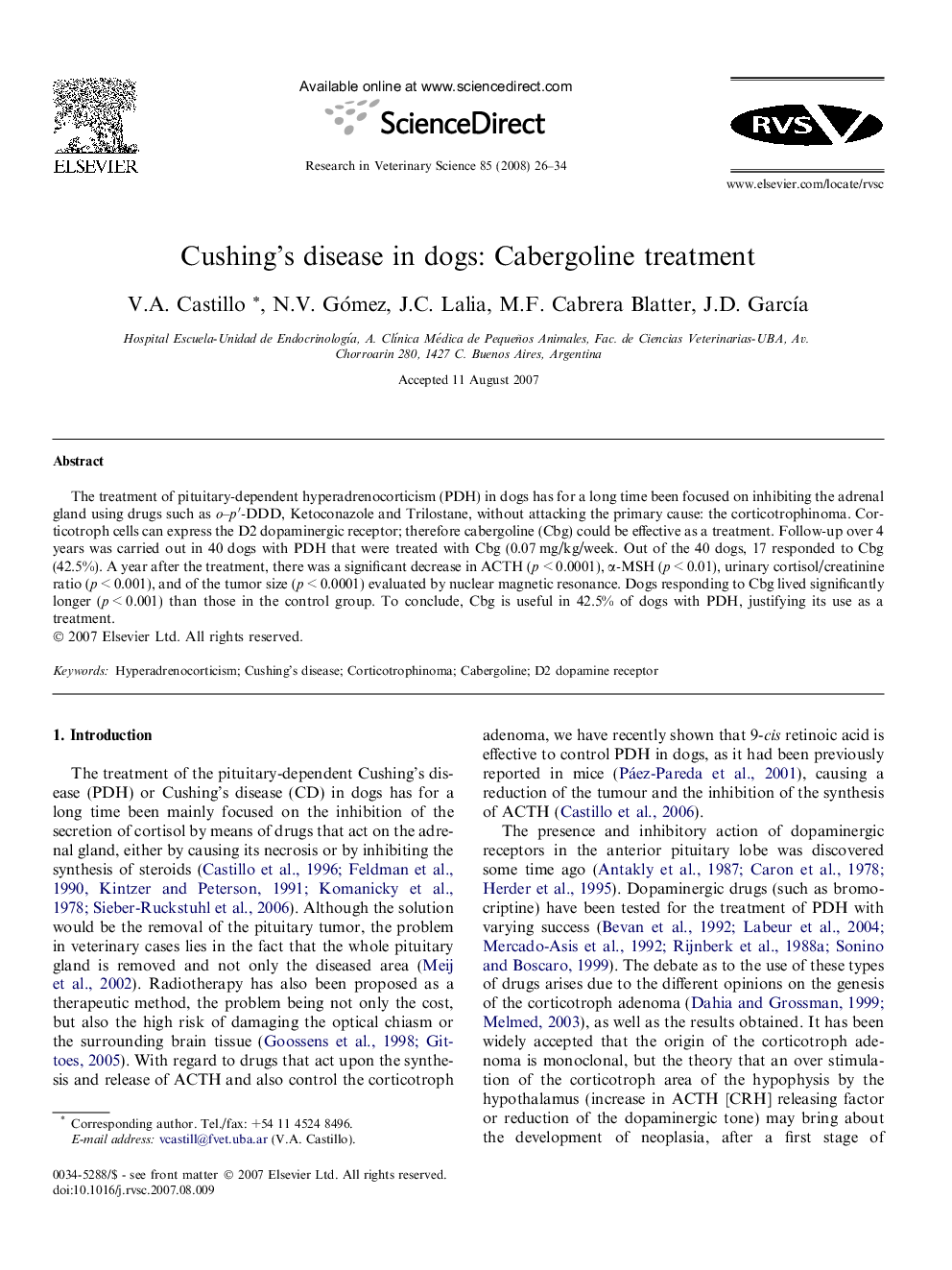| Article ID | Journal | Published Year | Pages | File Type |
|---|---|---|---|---|
| 2456384 | Research in Veterinary Science | 2008 | 9 Pages |
The treatment of pituitary-dependent hyperadrenocorticism (PDH) in dogs has for a long time been focused on inhibiting the adrenal gland using drugs such as o–p′-DDD, Ketoconazole and Trilostane, without attacking the primary cause: the corticotrophinoma. Corticotroph cells can express the D2 dopaminergic receptor; therefore cabergoline (Cbg) could be effective as a treatment. Follow-up over 4 years was carried out in 40 dogs with PDH that were treated with Cbg (0.07 mg/kg/week. Out of the 40 dogs, 17 responded to Cbg (42.5%). A year after the treatment, there was a significant decrease in ACTH (p < 0.0001), α-MSH (p < 0.01), urinary cortisol/creatinine ratio (p < 0.001), and of the tumor size (p < 0.0001) evaluated by nuclear magnetic resonance. Dogs responding to Cbg lived significantly longer (p < 0.001) than those in the control group. To conclude, Cbg is useful in 42.5% of dogs with PDH, justifying its use as a treatment.
